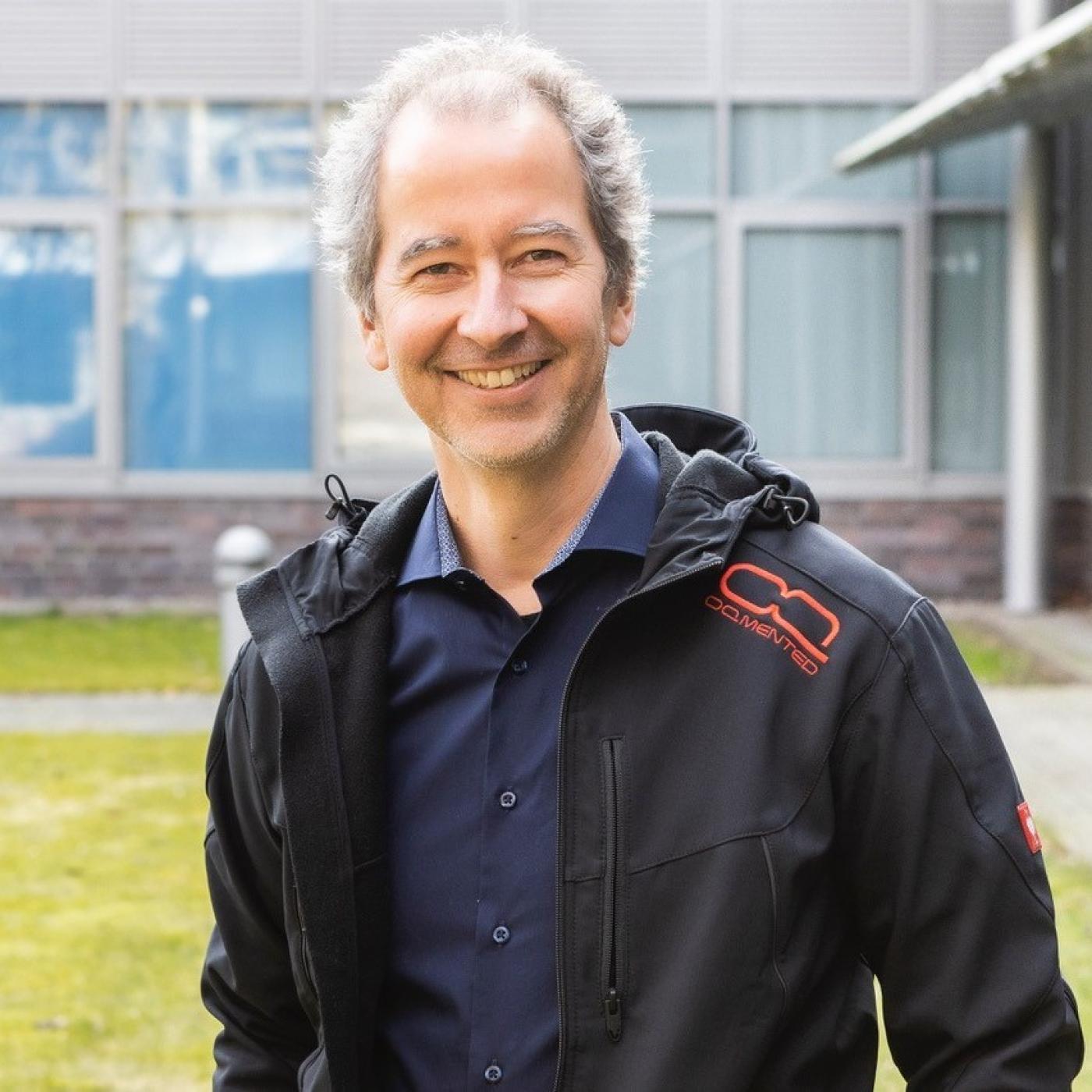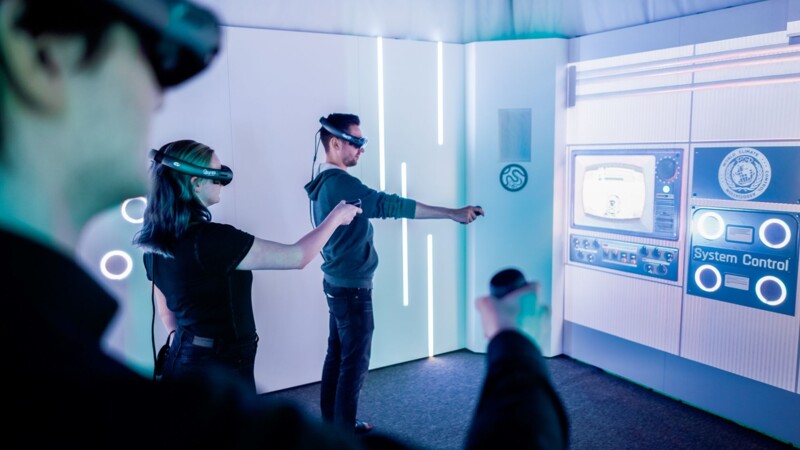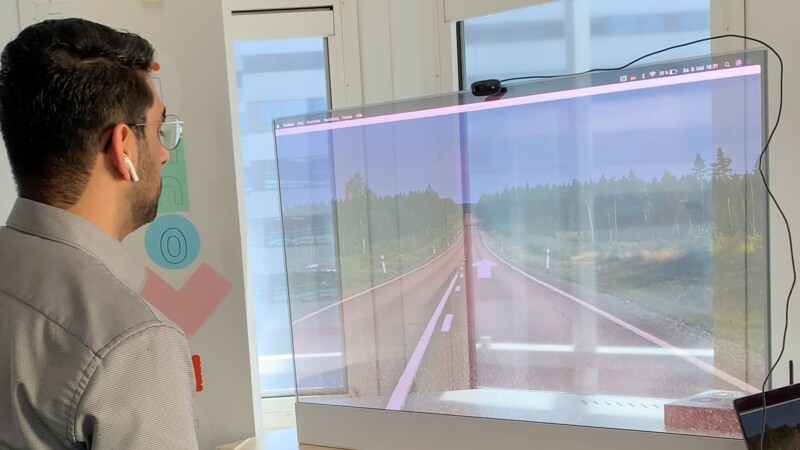"Our technology allows us to make elegant glasses. You cannot tell they are augmented reality-enabled," said Ulrich Hofmann, founder. This is achieved by a flat, square module with an edge length of a few millimeters, topped by a tiny, protective glass dome with a tiny mirror in the centre. Electronically controlled, it can be tilted around two axes up to 100,000 times per second. Depending on the application, the mirror guides light in the visible spectral range and in the near infrared to a random area in a given space.
Itzehoe-based Oqmented developing tiny mirrors for smart glasses
Augmented reality technology, similar to so-called head-up displays used by pilots to project key data about the flight and the condition of the aircraft into their field of vision, is gradually conquering the mass market. The Itzehoe-based Oqmented has developed a small optical laser module for lightweight AR glasses that can be used for computer games, virtual travel or as an aid for surgeons during operations. The spin-off from the Fraunhofer Institute for Silicon Technology (ISIT) offers this key technology to larger manufacturers of AR devices. The technology offers an opportunity for "the next big thing" and AR glasses have huge growth potential, according to digital association Bitkom e. V.
Stylish high-tech glasses
AR glasses for fitness, surgery and computer games
"This module, which we call a light engine, can perform two tasks," said Hofmann. If it deflects the tightly focused beam of an infrared laser, the rapid tilting of the mirror allows a nearby environment to be scanned swiftly. Laser light in the visible spectral range, on the other hand, is deflected by the mirror so precisely and swiftly that the wearer of the AR glasses can read razor-sharp writing in any colour in his field of vision - seemingly at arm's length in front of the eye. "A wide range of applications are possible for AR glasses that project key, additional information into the field of vision e.g., for surgeons to museum visitors," Hofmann pointed out. Whenever the user looks at a particular object or component, the matching text appears in the field of vision. Sports glasses with projected navigation data or fitness data, or an office variant for (3D) online meetings in three dimensions are likely in future, he noted.

Keen B2B interest in laser module
Hofmann founded his company in 2019 after spending several years researching optical MEMS modules at the Fraunhofer Institute. "It was time to develop tangible products based on all the knowledge I had acquired. During the the start-up phase, we got great support from the state of Schleswig-Holstein," he added. Oqmented won the state's start-up competition in 2019. Oqmented now has 75 employees and is applying for more and more patents. Larger manufacturers worldwide are showing keen interest in the filigree and energy-efficient "light engines" and the company is growing. The first products for the B2B sector will likely be available in 2025.
International collaboration, local development
The Fraunhofer Institute's clean production facilities in Itzehoe will not be sufficient to supply enough "light engines." Thus, Hofmann is laying plans for production with the European semiconductor manufacturer STMicroelectronics in northern Italy. Oqmented also has branches in Kiel, Essen, Jena and in the heart of Silicon Valley in Palo Alto, California. However, the R&D centre for ever better for microelectromechanical modules or MEMS systems will remain in Itzehoe and thus in the Hamburg Metropolitan Region.
jol/nj/pb
Sources and further information
More
Similar articles

Ten global start-ups secure grants from Scaleup Landing Pad Hamburg

Senate to strengthen Hamburg's female founders

